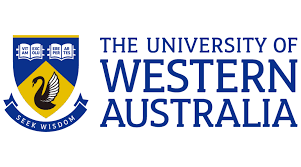University of Western Australia: New Translation Fellowships a boost for mental health and kids with autism
A project designed to increase awareness of the relationship between the arts and mental health and a digital tool to address anxiety concerns for children on the autism spectrum have been given a boost thanks to support from the Western Australian Future Health Research and Innovation Fund (FHRIF), which is an initiative of the Western Australian State Government.
Senior Research Fellow at The University of Western Australia’s School of Allied Health, Dr Christina Davies, has been awarded at FHRIF Translation Fellowship to continue leading research in arts and health via a campaign, programs and multi-sector professional development to increase awareness of the arts-mental health relationship.
“Mental health issues are on the rise, but there is strong evidence that just like sport, taking part in the arts can enhance mental wellbeing,” Dr Davies said. “Whether it’s listening to music, reading a novel, watching a movie or painting – as little as 20 minutes of arts per day could be good for your mental health.”
The FHRIF project translates Dr Davies award winning Healthway funded PhD research that quantified the arts-mental health relationship and highlights the benefits of the arts on health including increases happiness, confidence, self-esteem, relaxation and reduced social isolation.
Community members can nominate to get involved or receive project updates, by going to the UWA Good Arts Good Mental Health website.”
Telethon Kids Institute and UWA autism researcher Dr Gail Alvares has been awarded a FHRIF Translation Fellowship to lead an innovative mental health project, which will aim to transform early anxiety intervention for children diagnosed with autism and their families.
Dr Alvares, whose recent research called for the term ‘high-functioning autism’ to be abandoned, said mental health conditions such as anxiety frequently co-occurred with autism, and for many individuals, impairing anxiety symptoms were experienced during childhood.
She said this project aimed to develop, in partnership with the autism community, a world-first digital mental health platform for autistic children experiencing anxiety which would help to remove some of the barriers young people faced accessing mental healthcare in Australia.
“Anxiety in childhood significantly impacts wellbeing, quality of life, may limit participation in education and employment opportunities, and can be associated with depression,” Dr Alvares, a Senior Research Fellow at Telethon Kids’ CliniKids, said.
“More than 40 percent of children diagnosed with autism experience debilitating anxiety but often these families struggle to get the support they need due to a lack of accessible autism-informed service providers and affordability.
“Autistic people and their families repeatedly rank research into reducing anxiety and improving mental health outcomes as the most urgent priority, and this project directly addresses the community-informed need.”
Dr Alvares said the digital tool would allow caregivers to develop strategies to reduce their child’s anxiety that could be as effective as in-person care.
“Digital technology represents a unique solution to barriers accessing healthcare, due to accessibility, cost-efficacy, and its large presence in everyday lives,” Dr Alvares said.
“This intervention will directly address anxiety concerns during a critical period of development, alleviate demand on in person mental healthcare professionals, and diffuse burden on the WA health system.”

